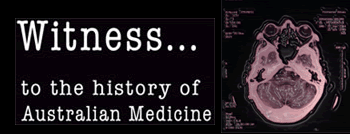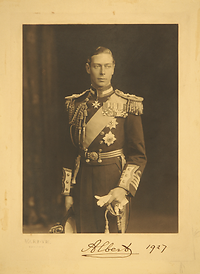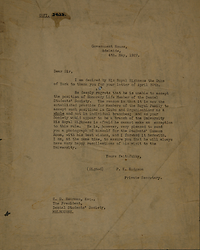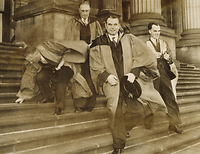


Developing dental education and research in Victoria
Introduction
Participants
Building a dental research culture
The influence of Frank Wilkinson
Developing linkages between the Dental School and Dental Hospital
The art and science of dentistry
The introduction and impact of fluoridation
Resolving a long-standing dispute with dental technicians
Training of dental health therapists
Dentistry's relationship with hospitals, government and industry
Controversy over the Dental School quota
The relationship between the School and the University of Melbourne
Relations between the School and the Australian Dental Association
The role of the School in childhood dental health
Funding research through the CRC and other programs
Personalities
Appendix; Some further thoughts stimulated by the Witness seminar
Endnotes
Index
Search
Help
Contact us

Ann Westmore: In the last few minutes, Iíd like to talk about personalities in the School.
John Hales: Harry McIntosh comes to mind.[109] He became totally committed to making beer in his bath. He attracted a certain amount of notoriety with this particular talent. I think itís good if your Demonstrator has a personality and comes to your social occasions.
John Harcourt: Harry once decided to put a can of soup in one of the furnaces. He forgot that liquids expand and we smelled burnt soup for weeks.
Henry Atkinson: There was Alan Grant who went on to become a Professor at Manchester. His contribution to fame was that when we were leaving the Spring St. building, there was a very important ceremony attended by Sir William [Anderson] and Sir Arthur Amies. Now Alan had arranged with some of his friends to dress up as undertakers and had hired the correct outfit and they had a coffin, on the side of which was written in large letters, ĎAustralian College of Dentistryí. Just as the proceedings were ending, Alan and his friends walked very slowly to a toll of a bell down the Conservative Clinic at the old school. Heíll always be remembered for that.
Mike Morgan: There was the time, too, when the Duke of York went on a wild goose chase.


John Harcourt: That was 1927; a group of dental students kidnapped him.
Henry Atkinson: He came to Wilson Hall for an honorary degree. When he came out the students had a carriage waiting for him. They whipped him away to the Dental School, and introduced him to the Dental Students Society.
In the Museum, Louise has a letter from the Duke and a photograph of the Duke[110] because the President, Cecil Hearman, wrote to him about this escapade and suggested that he become President.
If you look at the history of this, youíll find that the medical students take the credit for this. We stick to our story.
Gerry Dalitz: I tried to let tear gas off in the Dental Hospital once. Itís not a good idea.
John Harcourt: Alan Grant and Harry Gill[111] were responsible for letting hydrogen sulphide off in a fume cupboard that was right next to the air conditioning.
Maurice White: Iím a graduate of the School. I have an engineering works as well and we made a special drill to extract the Yellow Peril sculpture and then used a crane to transport it.
Peter Reade: Iíd like to record the support that Hec gave me, and Bryan Radden who was with me pretty well all the time I was there, as well as John Campbell.[112] The students liked them because they were kind and attentive.
We had a wonderful laboratory manager called Bill Charles.[113] The lab people were very supportive. And without them the system wouldnít have worked.
When I came to the Department there were four secretaries and one technician, who worked with Wilf Fleming[114], a doubly qualified ENT surgeon, who did the histopathology. One of my first jobs was to convert the four secretaries into one secretary and three technicians, and that gave us the basis for our laboratory support.
Ann Westmore: I think we had best wind up at this point. Thank you all for your frank contributions and willingness to provide your viewpoints. It has been a fascinating day.

 |
Witness to the History of Australian Medicine |  |
© The University of Melbourne 2005-16
Published by eScholarship Research Centre, using the Web Academic Resource Publisher
http://witness.esrc.unimelb.edu.au/123.html